Let’s just get this out of the way: Dragon Quest XI: Echoes of an Elusive Age is a stroke of JRPG brilliance.
If you’ve read any of my past reviews, then you know I’m a huge fan of JRPGs. But I’m not just a fan of the mainstream titles that everyone and their mother plays, I’ll happily play the niche, quirky and the downright bizarre. Hell, considering how often their developers are willing to step outside their comfort zone and try new things, I often prefer them.
However, sometimes I just want to kick back and play a JRPG whose selling point isn’t how different it is from the rest of the market. One that doesn’t endeavor to reinvent the wheel and simply plays it straight without a single bend or curve in sight. Dragon Quest XI is that game and has taken me back to my childhood in doing so. “Echoes of an Elusive Age” is not a title provided just for show — it is literally what this game is: a deliberate callback to the classic JRPGs on the Famicom/NES.

There isn’t anything here that a seasoned JRPG fan hasn’t seen before. From the core gameplay to the setting, from the plot to the characters that drive everything forward, playing this game will make you feel like you’ve gone back to a different era. One where substance — not style — was important, and developers couldn’t just throw money at a game to make its issues disappear.
Don’t take all this to mean that Dragon Quest XI is merely a cheap attempt to capitalize on nostalgia, though. Far from it, this game is what nostalgia looks like when it’s upscaled, modernized and refined. And when combined with Yuji Horii’s storytelling, Akira Toriyama’s designs and Koichi Sugiyama’s music, what we’re left with is a JRPG that will likely be talked about when our present age is considered elusive itself.
And to what does Dragon Quest XI owe its implied magnificence? Its knack for taking otherwise simple premises or concepts and elevating them to new heights.
Among the many JRPGs that populate the market nowadays, the one thing they have in common is complexity. As suggested before, they often try to reinvent the wheel in a bid to separate themselves from the crowd. No doubt, this is an endeavor that I deeply appreciate, but it’s not one that always works. All too often do their components and features get cluttered and confused, conflicting with one another and leaving the final products in varying states of disrepair
Fortunately, this is something that Dragon Quest XI completely avoids. Everything it offers is simple in concept, but they always have a layer depth to them that doesn’t conflict with anything else. Crafting gear is a simple process that can never fail, but takes effort and know-how to perfect; there are many quests (both main and side) that you can embark on, but the game will always tell you where to go; in fact, there are many mechanics you’ll need to get a grasp of, but everything is adequately explained to you. There is no guesswork, confusion or any of that mess.
And for a more concrete example, let’s take a look at the story, which has technically been done to death yet still manages to come off as fresh and nuanced.
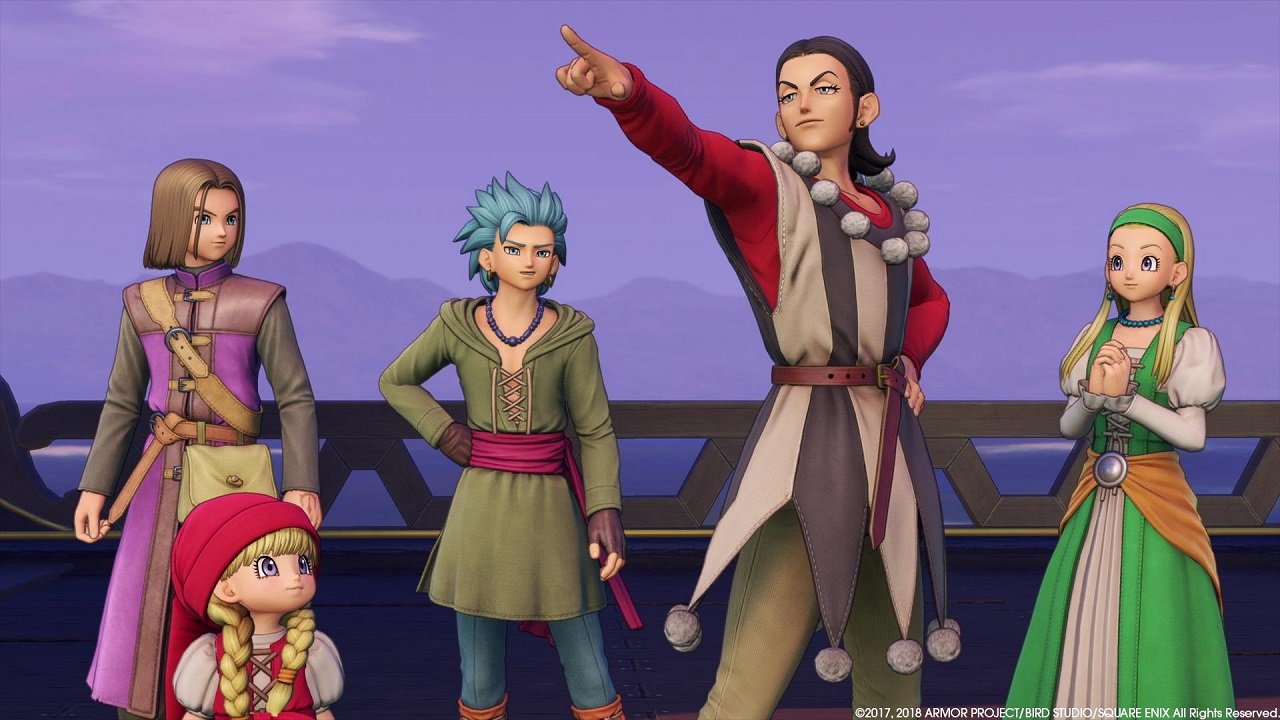
Dragon Quest XI tells the timeless tale of a young man and his merry band of cohorts as they work together to defeat an ancient evil who seeks to destroy the world. Specifically, you are the Luminary, the reincarnation of an ancient hero who defeated an evil, demonic being ages ago. And now that this evil has resurfaced, it’s up to you and a handful of trusted companions to set out into the world, discover the identity of this threat and defeat it before it can succeed in what it failed to do in ages past.
As I’ve mentioned before, there is nothing new here. Hell, the very premise of your adventure is an echo of an event that took place ages ago. Yet, Dragon Quest XI manages to avoid falling victim to common tropes due in part to tight storytelling. Nothing that happens during the course of your journey is meaningless and even the most innocuous of scenes or conversations can wind up being of major significance later on — in the end, everything is closely tied together. A run-of-the-mill cursed painting is more than just a cursed painting, and it turns out that an out-of-place lesson on fishing is worth listening to. This level of storytelling is consistent throughout the entire game and helps elevate what would have been an otherwise generic story to a level that JRPGs rarely reach.
And the other reason why the story works so well? The characters.
The Dragon Quest franchise has played host to some memorable characters over the years (Jessica and Yangus from VIII; Ruff, Maribel and Kiefer from VII and Bianca and Nera from V, to name a few), but this might be the first time that I found myself liking all the characters in my party. They’re all relatable and each have depth, possessing an arc that sees them grow as individuals by the time your journey reaches its end. Among them, my favorites were Veronica, a tiny, loud-mouthed mage who always seems to forget about her small stature, tries to enter a bar or other place for adults and then become enraged when they treat her like a child; and Sylvando, a travelling performer who usually comes off as camp (or possibly gay), but has many scenes where his words or actions belie his usual demeanor. I don’t want to give their character arcs away, but I promise at least one will be among your favorite characters once they’re complete — assuming they weren’t one of them already.
These two characters, along with four others, will join the Luminary on this quest, fighting monsters of all sorts via a battle system that takes Dragon Quest XI’s strength — elevation — to heart.
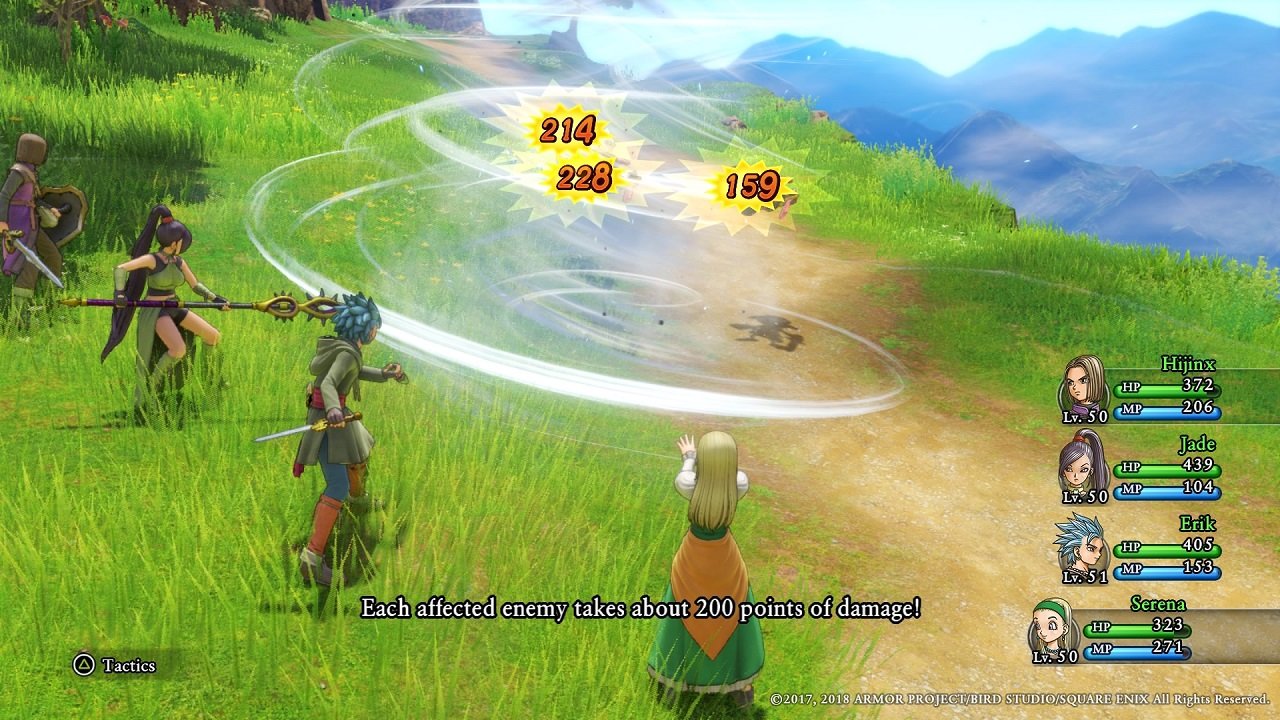
There is no ATB guage, timeline or other handy way to tell when your character will get their turn here, battles are a classic, turn-based affair where all you have is an agility stat to help give an estimate of when a character will get to act. In a similar vein, there are no jobs, mixing and matching various abilities or min-maxing stats, each character has their own unique movepool, along with various strengths and weaknesses that players will be required to comprehend and master in order to conquer each opponent and ultimately save Erdrea.
But where’s the complexity in that, you ask? It’s located in the Pep System and Character Builder.
Pep is a powered-up state that characters can attain once they receive enough damage or are subjected to other unfavorable situations for an extended period of time. Once active, a character will receive various stat boosts (like Final Fantasy IX’s Trance) and a new command called Pep Power which allows them to launch a special technique provided that both they and their teammate(s) have the appropriate skill (like Chrono Trigger’s Double/Triple Techs), allowing them to turn the tide of battle. However, with each activation comes an important decision: when to actually use your Pep Power. The Pep state will automatically expire when a Pep Power is used, so while your immediate inclination might be to hold on to the skill until the last moment, you’d be surprised at how many times you’ll be tempted into doing otherwise.
Meanwhile, the Character Builder is essentially a grid that allows each character to learn more even more abilities beyond the ones gained by leveling up. These are separated depending on the weapons required (sword, whip, axe, etc.) or theme unique to each character (Sylvando has Litheness and Showmanship, while Veronica has Vim, for instance). Though you have free reign to pick whatever you like (provided you have enough skill points and are are next to the panel you wish to unlock), not all skill trees were created equal and you have to spend 20 gold per skill point used to get them back if you make a wrong choice — something which isn’t even an option until you’re about a third into the game and prohibitively expensive at that point.
Honestly, the only real issue with combat is the lack of difficulty (in the main game, at least). I managed to beat the main game in a little under 60 hours with an average party level of 48 or so, and this was after doing all the side quests available up to that point. If you’re experienced and think you can do about the same, then I suggest trying Draconian Quest when starting a new game. This is basically DQ XI’s version of a hard mode, allowing players to choose various restrictions and modifiers — like being unable to wear armor or having your actions fail at random — to make their journey a more challenging one. You have the option of removing these restrictions if things get too difficult, too.
Of course, fighting isn’t all there is to do in Dragon Quest XI — just like any JRPG worth its salt, there’s a whole world to explore, as well as a fair amount of side content to lose yourself in.
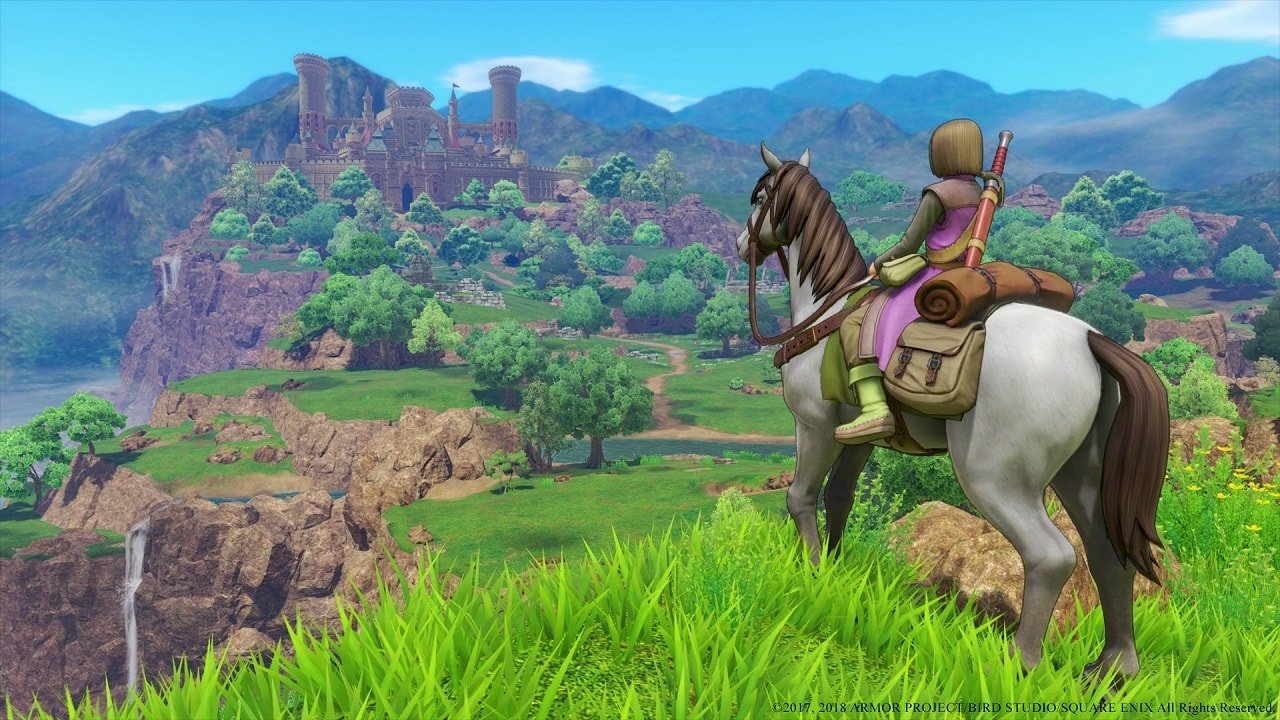
To put it simply, the world where DQ XI takes place, Erdrea, is jaw-droppingly beautiful, and where the modernization and upscaling mentioned before can truly be appreciated. No world in Dragon Quest has been this detailed or expansive, and whether you travel by foot, horse, monster (yes, you can ride certain defeated monsters), sea or air, you will inevitably come across something to gawk at. To reference just a few of these marvels, there are ruins of a once great kingdom which now plays host to a variety of demons and dragons, a system of dirty sewers beneath a bustling city with a dragon sleeping within, as well as a set of mysterious islands floating in the sky inhabited by people that look like they belong in “Dragonball.”
And within many of these locations are campsites where your party can rest, craft and enhance new equipment, pray at a sacred statue and occasionally buy new items/gear, as well as an omnipresent weather system and day/night cycle, affecting the movements of NPCs, enemies you can encounter, and some of the items that you find lying around.
And while that would probably already be enough to sate the appetite of most fans, this game ups the ante by throwing a plethora of aesthetically unique towns into the mix. Based on real world locations such as Hawaii, Italy and Spain (Catalonia?), each town is multi-dimensional, featuring the sights and architecture reminiscent of its source material. Of course, these towns aren’t just easy on the eyes, they function exactly as a town in a JRPG should. There are NPCs who hand out quests, hidden items to discover, equipment shops, the quintessential inn, a church to save your progress or provide other services and some even have mini-games, like casinos or horse racing, to waste your time with. It feels weird praising towns like this, but JRPGs that actually have multiple, well-designed towns are in short supply nowadays.
Before closing out, there is one thing I should mention: the soundtrack.
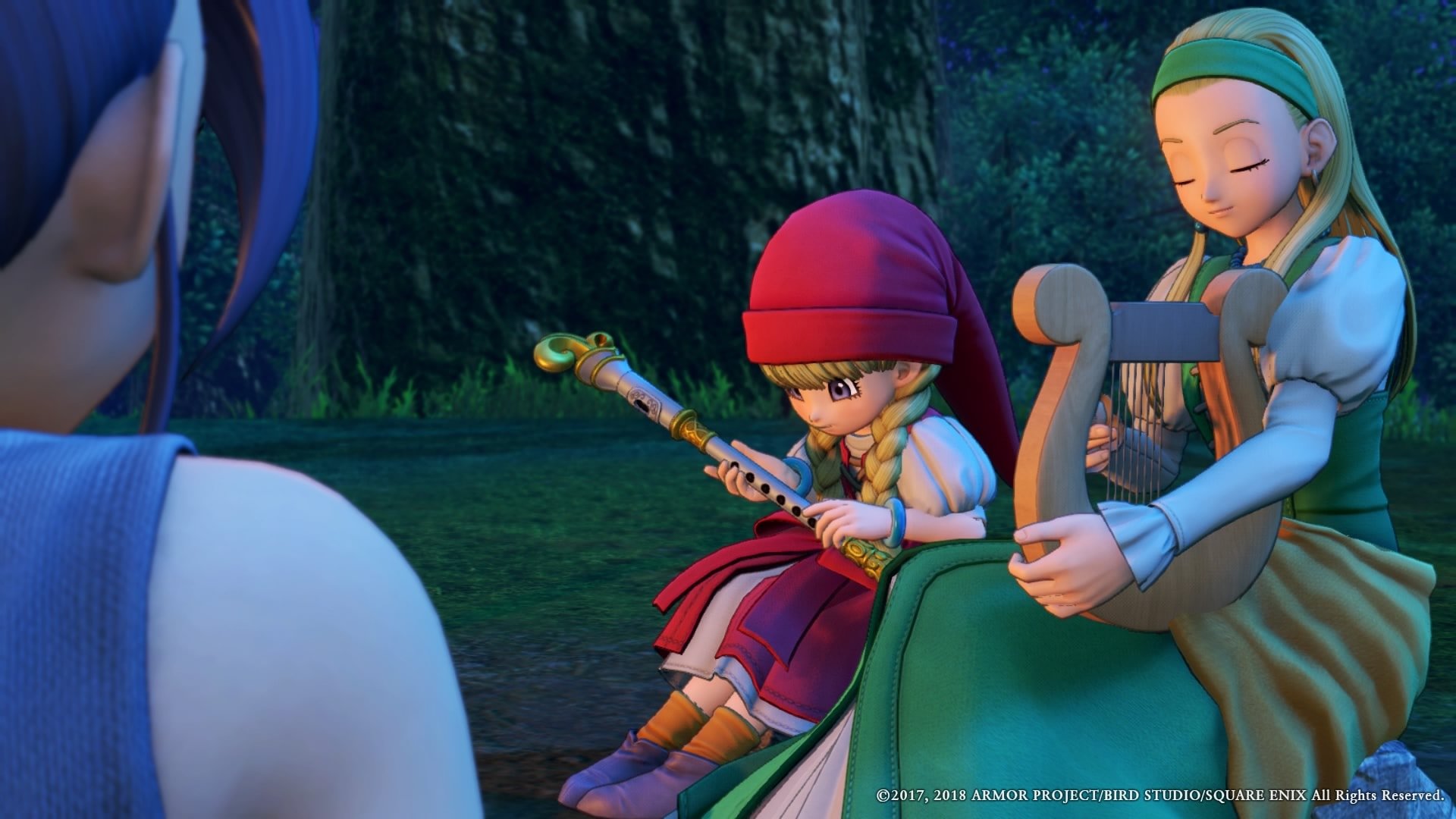
If you’ve been following this game in any capacity (or the series as a whole), then I’m sure you know about Koichi Sugiyama and his general refusal to have orchestrated tracks in Western versions of Dragon Quest titles. By that same token, you likely also know that he’s a fervent nationalist, war crime denier and recently showed up on a TV show where anti-LGBTQ comments were made (and he seemingly went along with them).
I could make the argument that none of this matters within the context of Dragon Quest XI since his beliefs don’t appear to bleed into his work, and while I would be right, I won’t bother. In fact, what I have to say has nothing to do with any of that, so feel free to continue boycotting this game if you don’t want to support someone who has abhorrent views (it’s still your prerogative to do so).
So what’s my problem? The way the soundtrack was implemented.
While I can begrudgingly look past the MIDI, it’s not as easy to overlook the soundtrack’s lazy implementation. Despite there being so many unique towns and locations featured throughout the game, I was shocked to find that many use the same track. Furthermore, I don’t recall hearing a new regular battle theme even up through the end of the postgame, which is odd since there are a good number of times in the story when the change in tone would warrant a new theme to go along with it. This isn’t dealbreaker, of course, but it’s a bit jarring to hear areas or events with completely different themes and aesthetics not necessarily have the score to match. I’m big on music, so this was the one thing preventing me from considering it a true masterpiece.
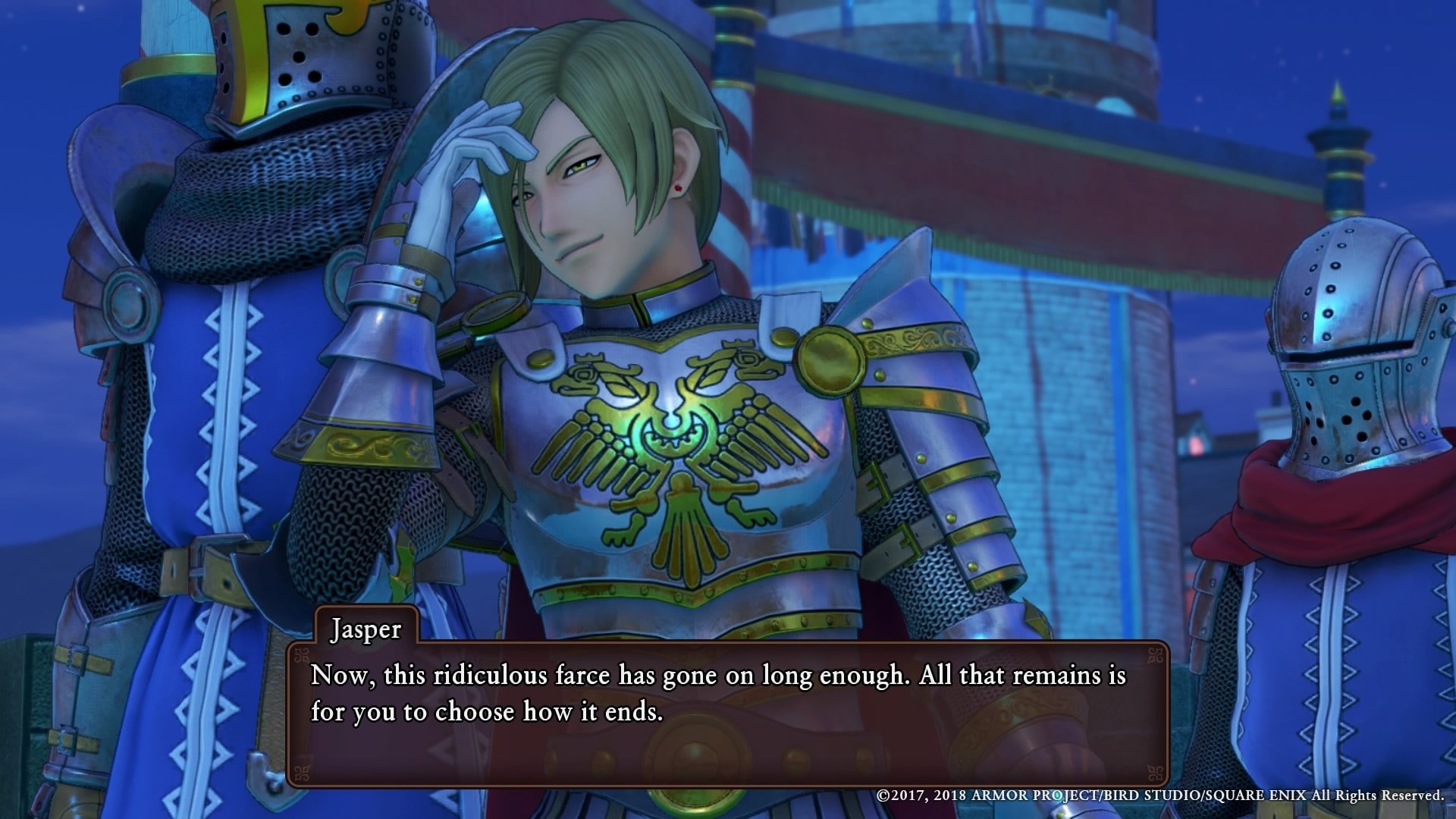
The Verdict
If this were any other review, I would use this time to provide a quick, final rundown of the positives and negatives before coming to a conclusion, but I’m not going to do that this time. What major flaws can I point out here? The soundtrack? It’s repetitive, but still good. The difficulty? There’s Draconian Quest. And beyond that, the overall story is engaging, the characters are all likable, the world is mesmerizing and everything is wrapped up in a neat package that makes it an absolute joy to play.
Seriously, if you had to pick just one JRPG to own on a modern console, then let it be Dragon Quest XI: Echoes of an Elusive Age.


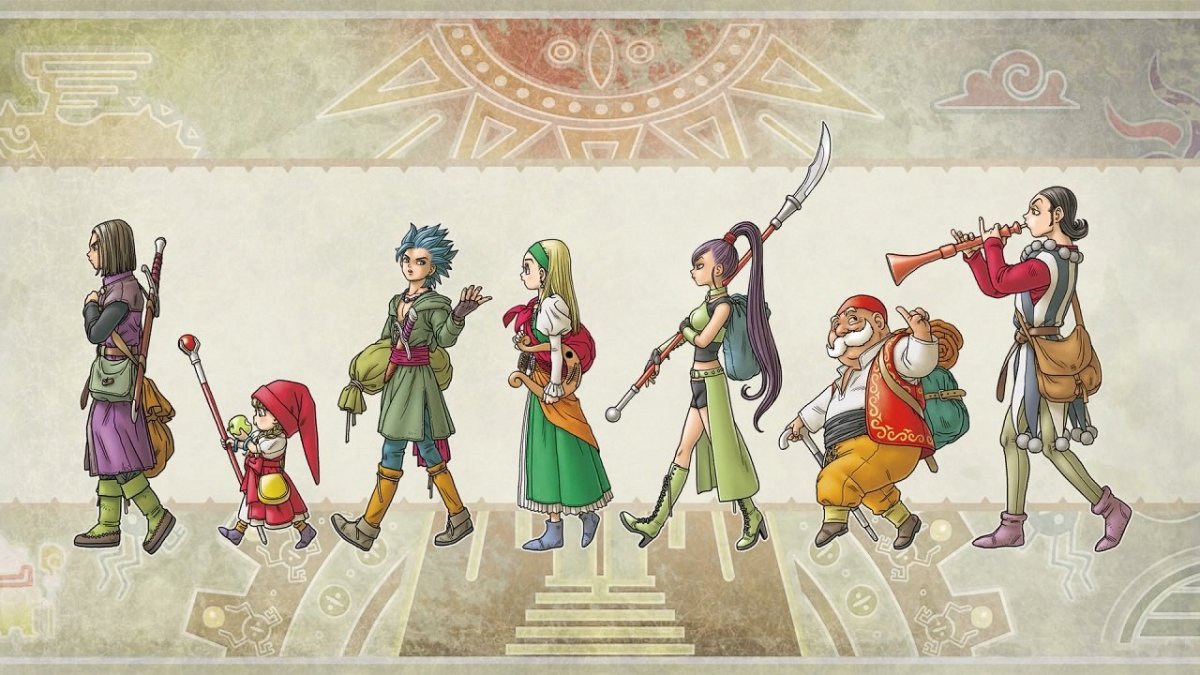
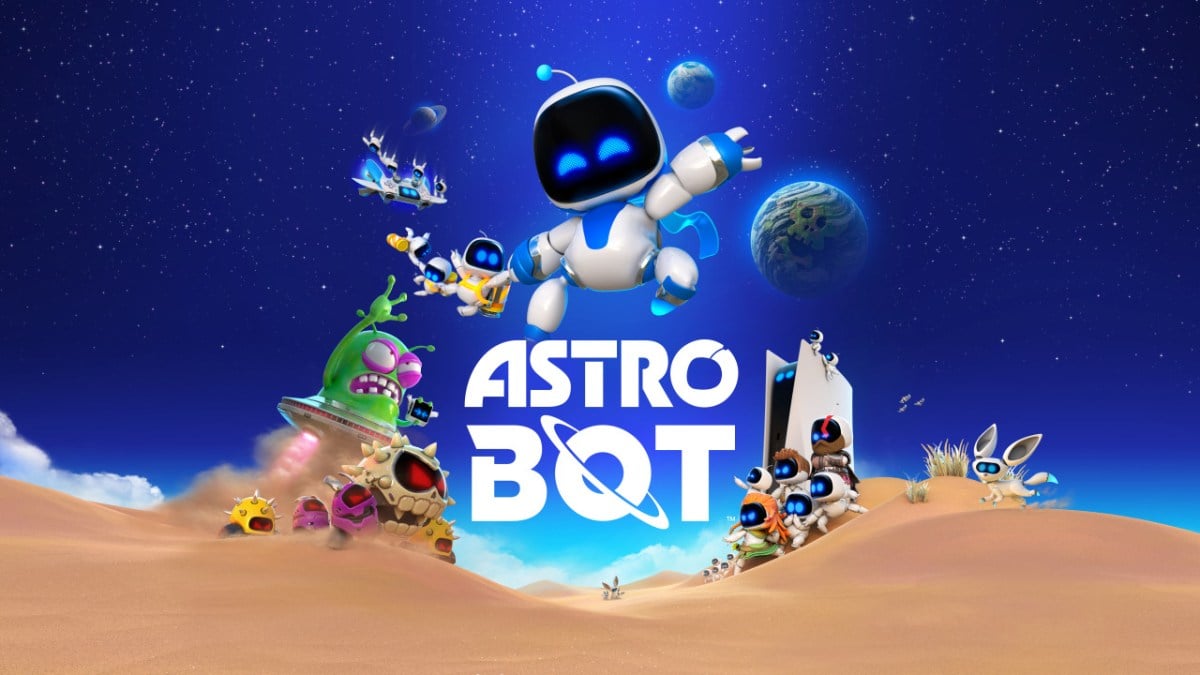
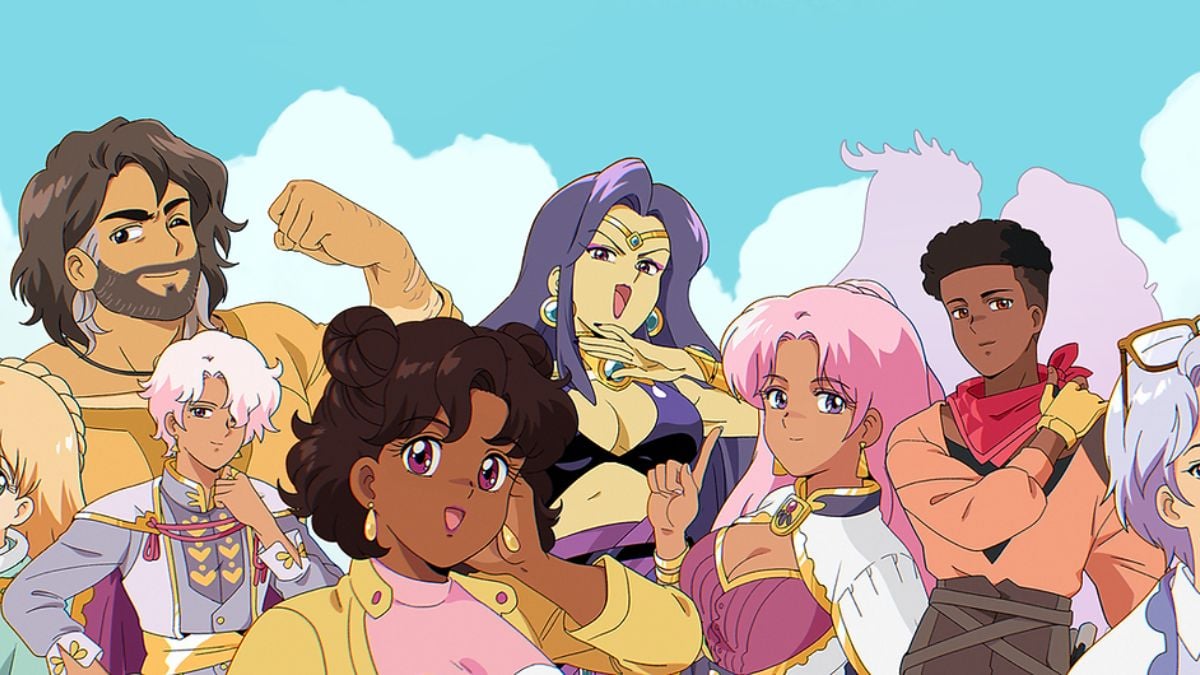
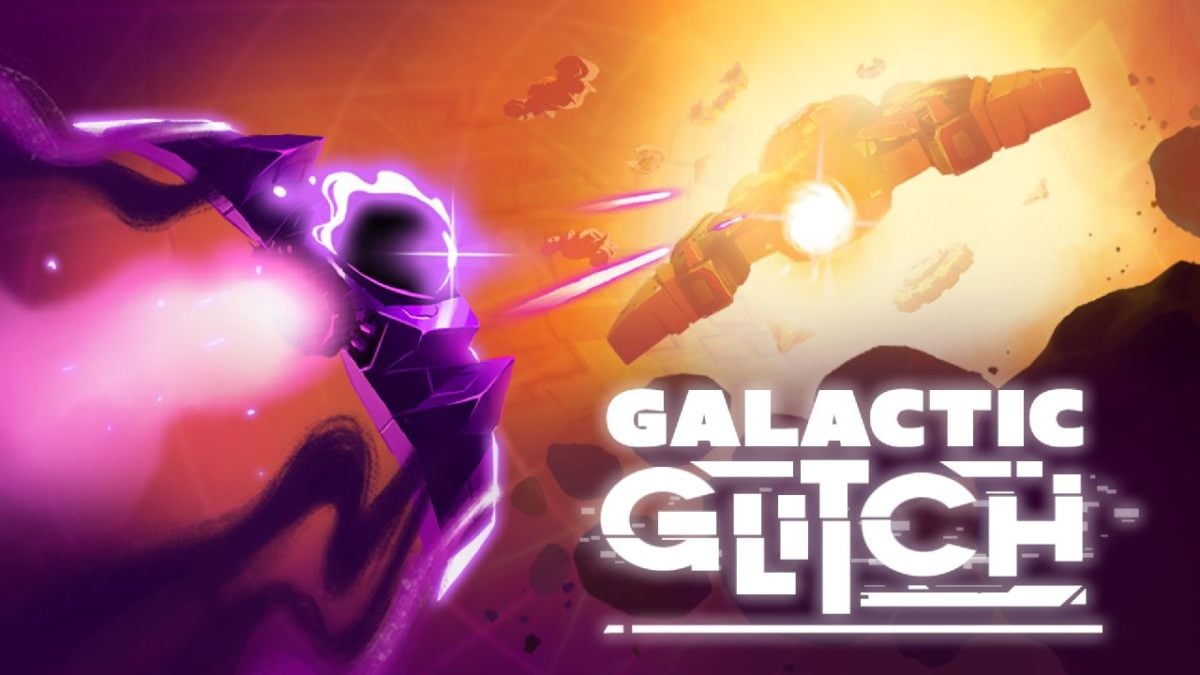
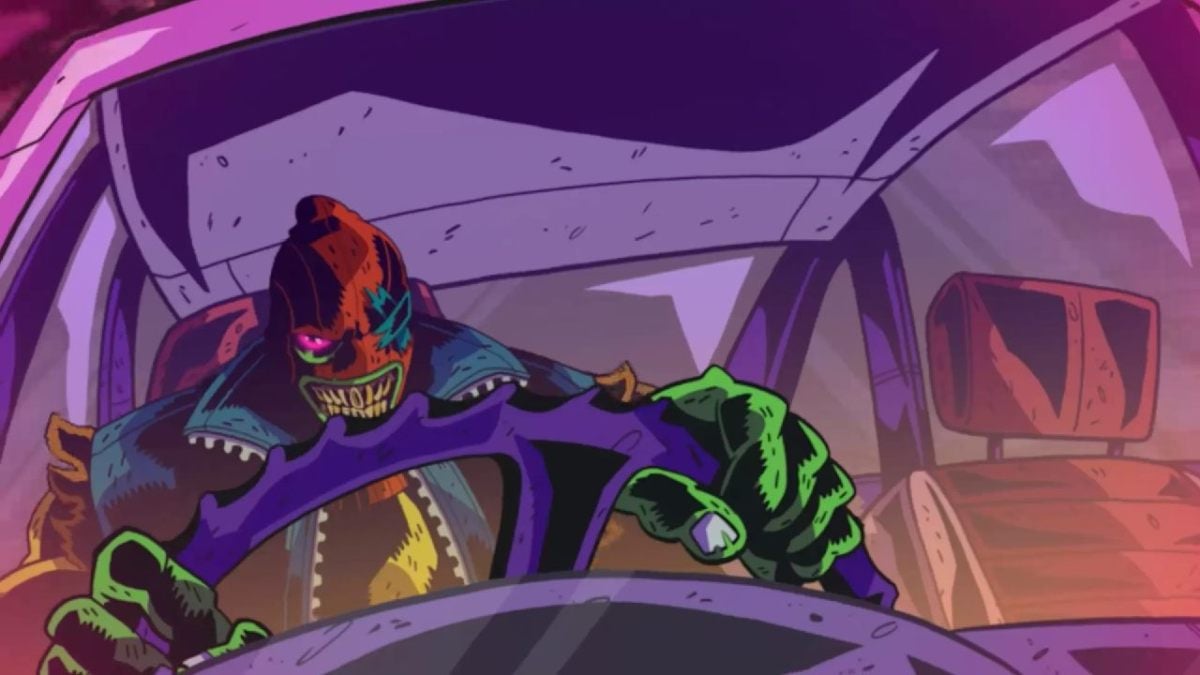
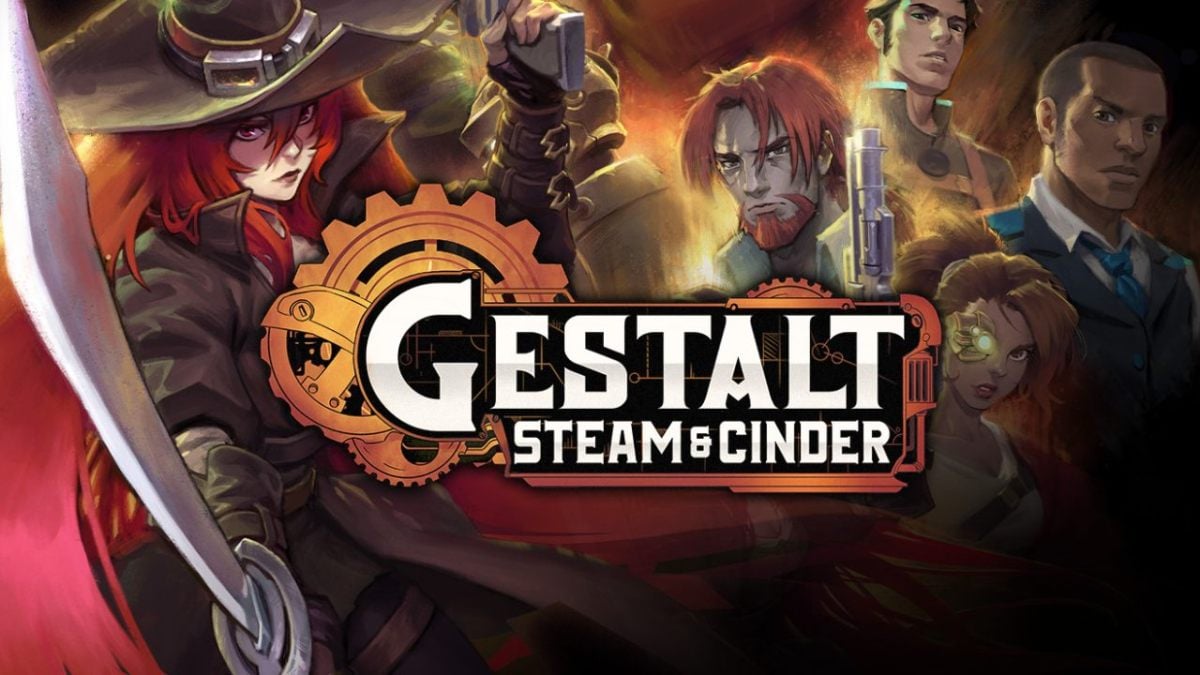
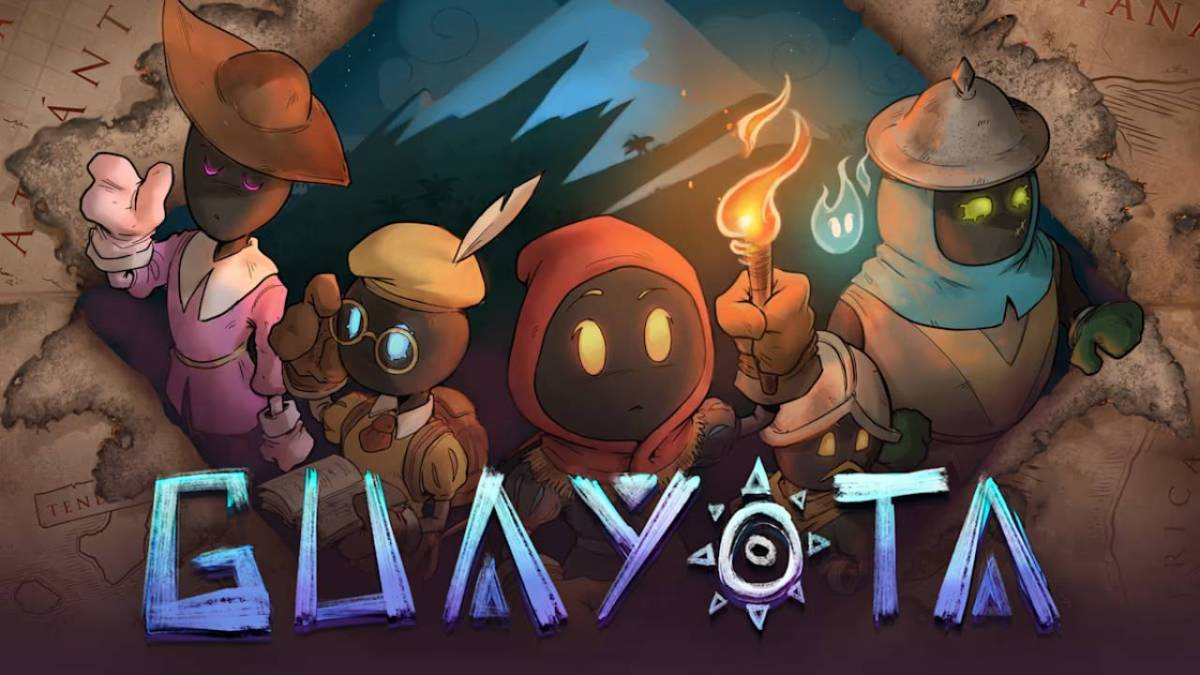

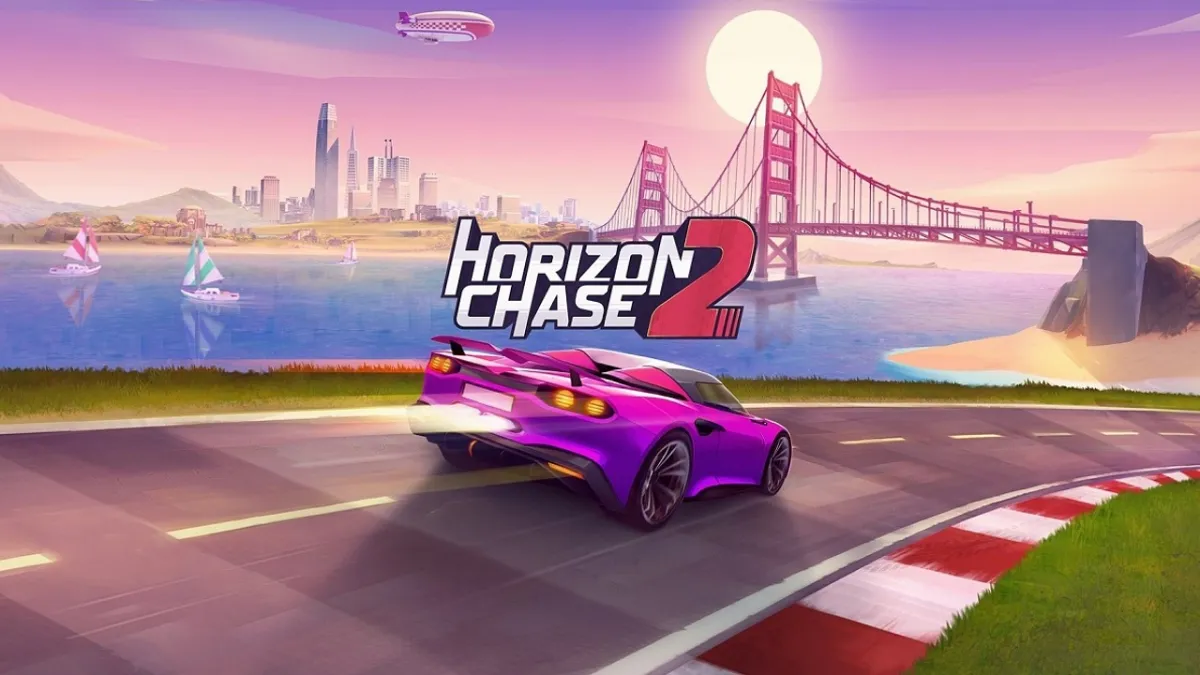
Published: Aug 28, 2018 07:59 am